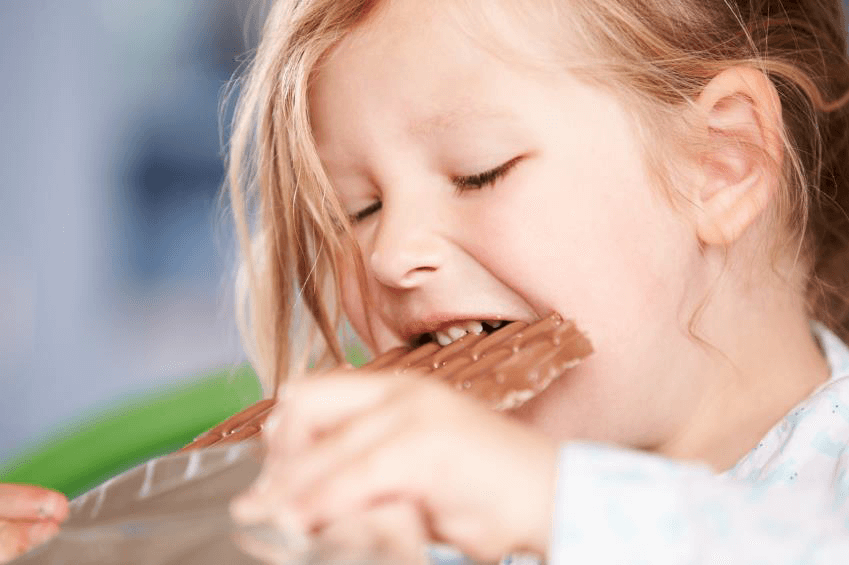
The Risks Of Food Rewards
Have you ever been frustrated and wondered how to convince your preschooler to behave? A sweet or dessert may seem like a powerful motivator in the
moment but could backfire later.
As a long-term reward
Preschool children have not developed the sense of time we have as adults (any surprises there?). If you are rewarding a child for a whole day of
good behavior or taking away a treat for misbehavior that happened hours earlier, he or she is likely missing the point altogether and only focused
on the end result of having been rewarded or punished.
good behavior or taking away a treat for misbehavior that happened hours earlier, he or she is likely missing the point altogether and only focused
on the end result of having been rewarded or punished.
As a short-term reward.
Food incentives might seem like a good idea because they can work short term, are inexpensive and easy, but from a health perspective, using food as a
reward or punishment can have negative consequences. Using food as motivation for good behavior teaches children to ignore important body signals.
Children, more so than most adults are very in tune with their bodies’ hunger and fullness cues. Ever noticed how small children will stop eating when
they are full, whereas an adult may finish his or her plate if the food is especially delicious, or even if it isn’t? Being able to easily stop when
satiated is a wonderful skill that children possess. When children are enticed with food, they can begin to ignore their hunger cues. Plus, whether
or not you use the word “treat,” children get the message that reward foods are “special” or “exciting”. It teaches children to eat (as much as possible
of) these foods when given the chance, even if they are not actually hungry or craving that specific food.
reward or punishment can have negative consequences. Using food as motivation for good behavior teaches children to ignore important body signals.
Children, more so than most adults are very in tune with their bodies’ hunger and fullness cues. Ever noticed how small children will stop eating when
they are full, whereas an adult may finish his or her plate if the food is especially delicious, or even if it isn’t? Being able to easily stop when
satiated is a wonderful skill that children possess. When children are enticed with food, they can begin to ignore their hunger cues. Plus, whether
or not you use the word “treat,” children get the message that reward foods are “special” or “exciting”. It teaches children to eat (as much as possible
of) these foods when given the chance, even if they are not actually hungry or craving that specific food.
Setting the stage for a healthy relationship with food.
Another risk of using food as a reward is that it can lead the child to associate food with love. As the child grows up and is sad or wants to reward him
or herself, seeking out specific food that was used as a reward, such as chocolate bars, might be second nature. As an adult, indulging in these snacks
could become a way to self-soothe, and could contribute to distorted eating behaviors.
or herself, seeking out specific food that was used as a reward, such as chocolate bars, might be second nature. As an adult, indulging in these snacks
could become a way to self-soothe, and could contribute to distorted eating behaviors.
This is not to say that children should never be allowed candy or sweets, rather it is the emphasis that is placed on these foods and the association between
a specific food and good behavior that should be avoided. Your child will have many happy memories growing up, and milk and cookies with you should
be one of them – but have the snack just because you’re happy to be together!
a specific food and good behavior that should be avoided. Your child will have many happy memories growing up, and milk and cookies with you should
be one of them – but have the snack just because you’re happy to be together!
Looking for ways to reward without food? Check out 51 Reward Ideas to Motivate Your Child.



